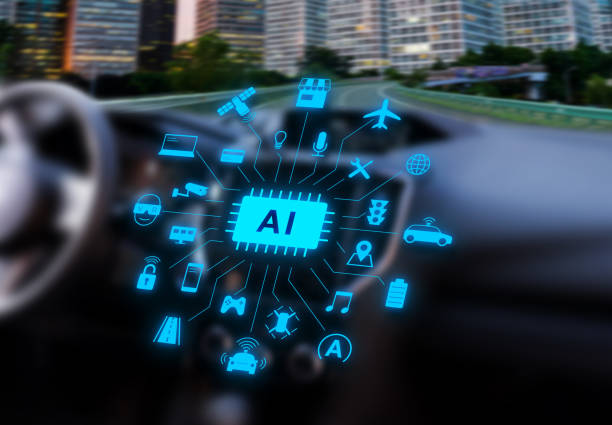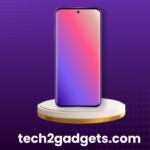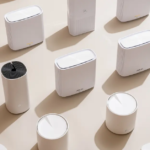In our digital world, AI-powered mobile apps are everywhere. From assistants to health apps, AI is changing how we use tech. With the increasing amount of sensitive data being collected and stored in AI-powered mobile apps, it is vital for businesses to prioritize the protection of their users’ information.
In this blog post, we will discuss some crucial challenges and solutions when it comes to privacy in AI-driven mobile apps, helping the users make informed decisions to ensure the security of your mobile app and its users.
Understanding Data Collection Practices
When it comes to AI-driven mobile apps, knowing what’s going on behind the scenes with your data is super important. Every time you use an AI-powered app, it’s like sharing a puzzle piece about you. The app collects these pieces to create useful information and improve your experience. But what pieces does it collect? Let’s break it down.
Many apps collect info like your location, interests, and typing. This allows them to tailor services for you, like suggesting a coffee spot or game you’d enjoy. Cool, right? But it’s crucial to know which puzzle pieces these apps collect and why.
The Risk of Data Breaches
Data breaches always worry people using AI powered mobile apps. These apps store your private data like name, address, bank details. Hackers try to steal this information which causes issues.
App development companies in the USA fight this by coding strong security walls. They use tough encryption codes to protect data. They check for weak spots that hackers exploit. They guard data like a treasure chest, keeping thieves out.
Encryption scrambles data. Even if hackers grab the data, they can’t read it without the key. It’s like writing a secret message only you and the receiver understand.
You must always monitor for unusual activities. This means looking out for signs that a hacker is trying to break in. If you spot a breach early, you can stop it before serious damage happens.
App developers also use ‘penetration testing’ techniques in which experts act like hackers and try to break into the app on purpose. But they don’t cause harm. They find weak spots that real hackers could use. This way, developers can fix issues before they become problems.
Ensuring User Consent and Control
As AI-driven mobile apps are rising, user control over personal data is crucial. Your information belongs to you, and only you should decide how it’s utilized. That’s where user consent and control come in.
- User consent is important. Apps should ask nicely if they can collect your personal data. The request must be clear and easy to grasp. No confusing words or hidden meanings. It’s like politely asking to borrow someone’s car – you’d want all the details before agreeing.
- Next is control. You decide what information to share. You can check the data the app has on you. You choose what to keep sharing. Want to share location but not contacts? That’s your choice. It’s like picking pizza toppings – everyone has preferences.
- App makers can help by having clear settings. There, you see shared data and change preferences anytime. They should also inform you if new data gets collected. This way, you stay updated.
Addressing AI Bias and Fairness
When AI-powered apps make decisions, fairness is crucial. But sometimes there’s bias is because the training data lacks diversity. Developers are working hard to fix this AI bias issue.
Let’s look at how AI learns and why diversity matters. AI absorbs knowledge like we do from books. But it would miss out if all books covered just one topic. That’s why top app development company in Los Angeles ensures to provide the right data to AI. It’s like adding books across genres to a library. The AI then learns from diverse views, leading to fairer outcomes.
Developers also test apps to catch and fix bias. It’s similar to proofreading a book before publishing to fix mistakes. They use tools to check if an app makes biased decisions. If issues arise, developers work to resolve them, ensuring fairness for all users.
Creating unbiased, fair apps is crucial for equal treatment. It shows developers value positive impact, respecting user privacy and dignity. Addressing AI bias brings us closer to technology working fairly for everyone.
Protecting Against Unauthorized Access
Securing AI-driven mobile apps from hackers is like locking your home’s front door when leaving. You wouldn’t want anyone entering without permission. Similarly, developers secure these apps to protect your personal data from unauthorized access.
You can access apps securely using something called biometric authentication. It uses unique traits like fingerprints or faces to identify you. Just like a key for your home, your fingerprint is unique to you. This makes it hard for others to access your app by pretending to be you.
There’s also two-factor authentication or 2FA. It adds an extra layer of security. Even if someone has your password, they can’t get in without a code sent to your phone or email. The app double-checks “Is this really you?” before allowing access.
But developers constantly update security measures against new hacking tricks. It’s like changing locks regularly to keep them strong. By using biometric and two-factor authentication, app developers work to keep your personal information private. And by updating security, they ensure these digital locks remain tough, safeguarding your data from unauthorized access.
Compliance with Privacy Regulations
Navigating AI-driven mobile app privacy rules may seem daunting. But for developers, following these rules shows users their privacy matters. Imagine each app promising to keep your personal info safe. That’s what compliance with privacy regulations is about.
In various regions, there are different privacy guards. Europe has the General Data Protection Regulation (GDPR), and California has the California Consumer Privacy Act (CCPA). These protect your data when using apps powered by artificial intelligence (AI).
Here’s how it works: Developers must clearly show what data they collect from you. No secrecy is allowed. They also explain why they need it and who else can view it. It’s like a list of ingredients on your snacks. You have the right to know what you’re “consuming”.
If you change your mind about an app, these rules let you take control back. Want to delete your account or download your data? You can do it. It’s like having an emergency exit, always ready if needed.
As developers create and code, they also ensure they follow the rules, and these aren’t just any rules – they protect you. By following these guidelines, app makers earn trust from users like you and me. In the AI app world, trust is key.
Conclusion
In summary, making AI apps private and safe isn’t easy, but it’s crucial. It’s like a puzzle. Each piece – knowing how your data is used, stopping hackers, safely storing info, letting you control data, being fair, blocking intruders, following privacy rules – is vital to complete the picture.
For top mobile app development company in Dallas, protecting data is a daily task. They must guard data like superheroes. It’s not just making a cool app; it’s doing so safely. Developers tackle this challenge directly. They build trustworthy bonds with users like you. Imagine an app making your day easier and giving you privacy and peace. That’s the goal. By focusing on solutions, you’re not just making better apps; you’re making the digital space safer for all. It’s about trust. When developers and users understand needs, we enjoy AI apps without losing privacy. Let’s keep striving for that balance.










